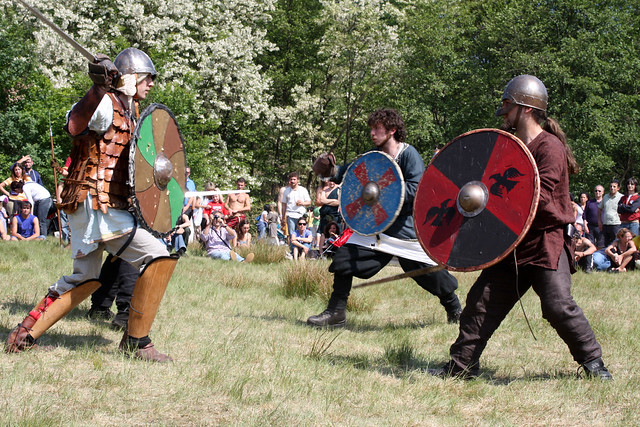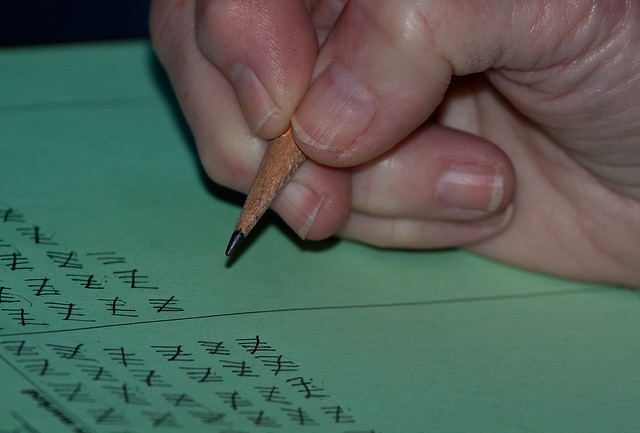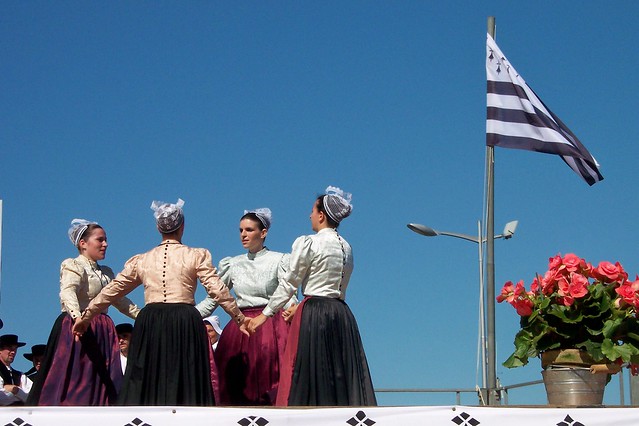Words for might, ability and related things in Celtic languages.
| Proto-Celtic | *galā = might, ablity *galnati = to be able, can |
|---|---|
| Old Irish (Goídelc) | gal [ɡal] = battle-ardor, stean, valour. Appears in male names, such as Congal, Donngal and Fergal. dígal [ˈdʲiːɣal] = punishment;, revenge, vengeance fingal = kinslaying, parricide, fratricide fogal = attack, damage, pillaging, plundering, trepass |
| Middle Irish (Gaoidhealg) | gal = warlike ardor, fury, valour, heat, fury; steam, vapour, mist armgal = warlike bravery bonngal = (act of) trampling congal = conflict, fight, attack dígal = avenging, punishing, vengeance, punishment fogal = to attack, damage, injure |
| Irish (Gaeilge) | gal [ɡal̪ˠ] = (warlike) ardour, valour, fury; vapour, steam, boiling; puff, whiff; fit, bout, turn; demand galach = valiant man, warrior; boaster, blusterer; ardent, valiant; vaporous, steaming, boiling hot galacht = ardency, valour galaigh = to vapourize, steam, evaporate, volatilize galán = puff, whiff; crane-fly, daddy-longlegs díoghail = revenge, vengeance, punishment |
| Scottish Gaelic (Gàidhlig) | gal [ɡal̪ˠ] = burst of light/heat, ardour, valour, fury, vapour, steam galach = ardent, valiant, brace, strong, furious, steaming, vaporous galan = burst, blast, baying dìoghail [dʲiə.al] = revenge, vengeance |
| Manx (Gaelg) | gaal, gall = vapour jeeyll, jeeill [ˈdʲiːɣal] = damage, harmfulness, havoc, injury, prejudice, vandalism |
| Proto-Brythonic | *gal = enemy, adversary |
| Middle Welsh (Kymraec) | gal = enemy, adversary |
| Welsh (Cymraeg) | gâl = enemy, adversary; enmity, hatred; passion; valour, boldness galanas = blood-feud, enmity, hatred, slaughter, massacre gallaf, gallu = to be able to, to have power (to) |
| Middle Cornish (Cernewec) | gal = rust, evil, wickedness, a wicked fellow gallogec = powerful, mighty gallos, galloys, gallus = power, might, authority gallosec = powerful, mighty, able galluidoc = able, potent gally = to be able, may, can |
| Cornish (Kernewek) | gal = outcat, villain gallojek, gallosek = capable, capable, mighty, potent, powerful gallos = to be able to, can, ability, might, power, know-how, capability gallosedh = power |
| Old Breton | gal = violent, intense, urgent |
| Middle Breton (Brezonec) | gal = violent, intense, urgent galloud, galloet, gallout = can, to be able, power, authority galloudeg = powerful galloudegader = power of attorney galloudegezh = power, might, potency, strength |
| Breton (Brezhoneg) | gallout = can, to be able galloud = power |
Etymology: from Proto-Indo-European *gelH- (naked, head) [source]. Words in Celtic languages for revenge and related things come from the same roots.
Words marked with a * are reconstructions.
Sources: Wiktionary, Am Faclair Beag, Online Manx Dictionary, Teanglann.ie, eDIL – Electronic Dictionary of the Irish Language, In Dúil Bélrai English – Old Irish glossary, Geiriadur Prifysgol Cymru, Gerlyver Kernewek, Gerlyvyr Cernewec, Dictionaire Favereau, TermOfis, Le dictionnaire diachronique du breton, Geriafurch, English – ProtoCeltic WordList (PDF), Etymological Dictionary Of Proto Celtic











